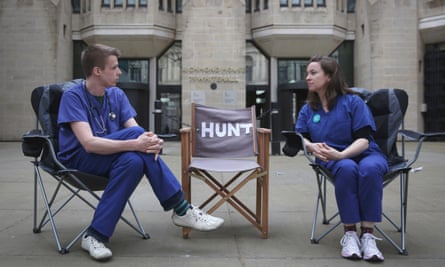Congratulations to Adam Kay, who has triumphed in the Books Are My Bag awards as readers’ choice of the year. This Is Going to Hurt, his diary of life as a junior doctor, was voted for by 40,000 fans. Kay joins a long tradition of author physicians. It makes sense, sort of – doctors and writers share a sense of focus; a detached, objective perspective; and a process of trial and error that hopefully resolves things. For those who enjoyed Kay’s book, here are five more medical reads by medics …
Do No Harm by Henry Marsh
The highly-respected British neurosurgeon Henry Marsh’s first book Do No Harm: Stories of Life, Death, and Brain Surgery was a bestseller in 2014, and his latest has proved just as popular. Do No Harm saw Marsh draw on his 40 years of experience in the operating theatres of St. George’s hospital, London, pondering whether he has lived up to the Hippocratic oath of the book’s title.
Speaking to the Observer earlier this year while promoting his follow-up memoir, Admissions: A Life in Brain Surgery, Marsh said: “I have always written diaries, since I was 12 years old, piles of them. I just thought my poor children would inherit them all. But as a surgeon you do lead an interesting life, and I thought there might be some interest in it. Particularly in neurosurgery – because every day it is not just people’s lives, but their very being that is at risk.”
When Breath Becomes Air by Paul Kalanithi
Kalanithi’s moving memoir, detailing his career as a successful neurosurgeon and his fatal diagnosis with lung cancer, was released posthumously in 2016. Before his death, Kalanithi contributed essays about facing his own mortality and his vision for the future of medicine to the New York Times and the Paris Review.
The Observer stated that When Breath Becomes Air “leaves its reader full-hearted: at once wishing that it had never been written, and yet moved and enriched by its humanity and accomplishment”.
Reviewing the book for the Guardian, Henry Marsh wrote: “[Kalanithi] was clearly a deeply thoughtful and compassionate man, and his death is a great loss to medicine, but at least he has left this remarkable book behind.”
Your Life in My Hands by Rachel Clarke
Considering the NHS in what the Red Cross called “a humanitarian crisis”, Oxford-based palliative care doctor Clarke relates her role in the junior doctors’ campaign against health secretary Jeremy Hunt’s imposition of a new contract, including a protest outside the Department of Health’s London offices.
The Guardian wrote that: “The book follows Clarke through eight bruising years of working in the NHS, witnessing systemic degradation of Britain’s most valued public service first hand. She tells the story of 17-hour days and 70-hour weeks, complete with fountains of blood, Kafkaesque bureaucracy, and the constant struggle with limited resources.” Despite everything, Clarke’s continued enthusiasm for her profession comes through.

A Young Doctor’s Notebook by Mikhail Bulgakov
Best known for his masterpiece, The Master and Margarita, Bulgakov originally wrote these short stories during his time as a graduate doctor, between 1916 and 1918. The stories were first submitted to medical journals, but later compiled and published in book form in the 1920s. Stories include Morphine and The Speckled Rash (which details a diagnosis of syphilis).
Bulgakov is just one of many Russian physician-authors. I would also recommend Anna Bek’s The Life of a Russian Woman Doctor: A Siberian Memoir, Anton Chekhov’s short story Ward No 6 (and others) and Vasily Aksyono’s Generations of Winter.
Extreme Medicine by Kevin Fong
This book, subtitled How Exploration Transformed Medicine in the 20th Century, was published in 2012 to critical acclaim. Fong, who is also consultant anaesthetist at UCL Hospitals, has since published two more books in the Extreme series, charting the effects altitude, rare diseases and tracing how far medicine has come in the past few centuries.
The New York Times said: “Fong tells a good story, and in this time of unrelenting criticism of our medical system, we need to be reminded of how much we’ve learned in the past 100 years, how much we know, how miraculous it all is, what a blessing.”
Which others would you add to the script?

Comments (…)
Sign in or create your Guardian account to join the discussion